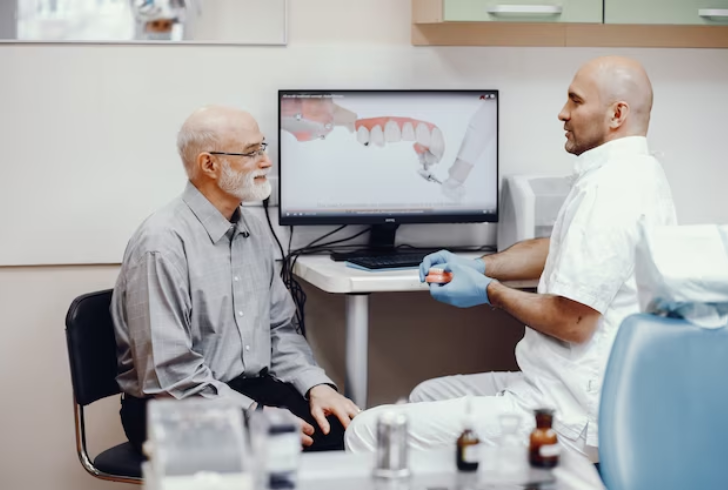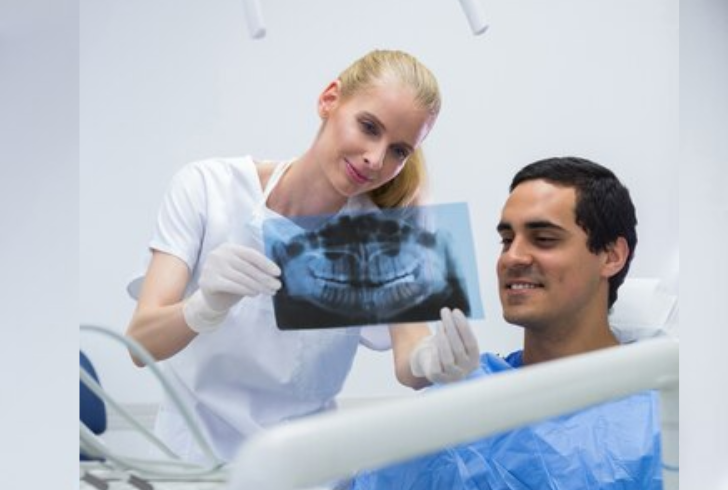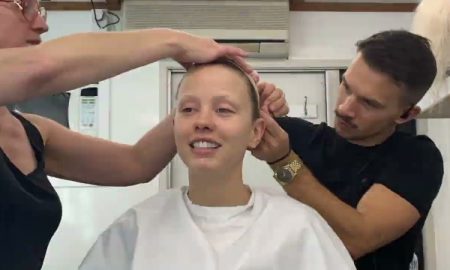
How to Navigate Medicare and Insurance Options in 2024

As we age, maintaining good dental health becomes more important than ever. However, according to the Kaiser Family Foundation, nearly half of Medicare beneficiaries did not visit the dentist in 2019. Why? Medicare does not cover routine dental care. To meet their oral health needs, seniors must navigate a puzzle of Medicare, Medicare Advantage, and other insurance choices.
Understanding Medicare’s Limits on Dental Coverage
Medicare Part A and Part B pay for dental services only when medically necessary for certain covered procedures—for example, a dental exam required before dental work needed for radiation treatment for oral cancer. Routine cleanings, fillings, dentures, and other common dental care are not covered.
Congress has attempted to add routine dental care to Medicare over the years, but legislation has never passed. Groups like the American Dental Association have opposed expanding Medicare to include standard dental benefits.
With baby boomers aging into Medicare, lack of dental coverage has become a bigger issue. Surveys by groups like the Senior Citizens League find over half of seniors go without dental insurance because premiums have become too expensive.

Image by prostooleh on Freepik | Senior Citizens League find over half of seniors go without dental insurance because premiums have become too expensive.
“It is surprising how many seniors forgot dental insurance since periodontal disease is very common among seniors and can be very expensive to pay for out of pocket,” says Mary Johnson, a Medicare policy analyst.
The Cost of Dental Care for Seniors Is Rising
A major dental issue can lead to a cascade of expensive procedures and appliances. As we age, dental problems become more common. Johnson states, “Good dental care is an important part of maintaining your health.”
Gum disease is linked to other chronic illnesses like diabetes and heart disease. So, regular dental care provides preventive medicine for your whole body.
A 2010 survey by the Senior Citizens League found over half of Medicare beneficiaries spent $800 to $2,000 or more per year on dental care. Seniors without dental insurance often skip visits.
When evaluating plans, pay attention to deductibles, copays, coinsurance and yearly maximums that determine out-of-pocket costs. Speaking with your dentist about upcoming needs can help guide insurance decisions.
Advantage Plans Fill Medicare’s Dental Gap
One option for more dental coverage is a Medicare Advantage or Part C plan. These plans are sold by private insurers but cover the same services as Medicare Parts A and B. And most provide some dental benefits.
The average Medicare beneficiary has access to 43 Medicare Advantage plans and 97% offer dental, according to Kaiser. Many plans include cleanings, x-rays and other preventive services. Some offer coverage for major dental work like crowns and dentures.

Image by wavebreakmedia_micro on Freepik | X-rays and other preventive services. Some offer coverage for major dental work like crowns and dentures.
“Nearly every Medicare Advantage plan offers dental benefits, which are generally more comprehensive than they were five years ago,” says Mike Adelberg of the National Association of Dental Plans.
Use Medicare’s Plan Finder tool to see if Advantage plans in your area offer dental. The summary of benefits will show what’s included. Look for higher yearly maximums if you anticipate major dental expenses.
Additional Dental Insurance – Private Plans, Medicaid, Employer Coverage
If dealing with Medicare Advantage seems like solving a complex puzzle, buying private dental insurance can fill the remaining gaps. Many insurers sell dental policies to individuals and families. Some options:
- Dental HMO: Lower-cost care from a limited network of dentists. You pay a copay for office visits.
- Dental PPO: Flexibility to see any dentist, but you’ll pay less with in-network providers.
- Discount dental plan: Not true insurance, but it provides access to discounted rates from participating dentists.
Private dental plans cost $25 to $60 per month, depending on the level of coverage. Routine cleaning and x-rays are fully covered, while major work like crowns are covered at 50% to 80%. Shop on the Health Insurance Marketplace or look at options from AARP.

Image by Drazen Zigic on Freepik | The original Medicare plan may feel incomplete when it comes to dental care coverage for seniors.
Other possible sources of dental benefits include:
- Medicaid – Covers adults and children based on income.
- Employer-sponsored retiree plans.
- Veterans benefits – Some dental care options for veterans.
Finding the Right Dental Coverage Combination
The original Medicare plan may feel incomplete when it comes to dental care coverage for seniors. But with the rise of Medicare Advantage and a range of private insurers offering dental policies, you have more options.
There is no perfect solution that will cover every dental need. Finding the right plan requires understanding what Medicare, Medicare Advantage and private dental insurance will and won’t cover.
Talk to your dentist about your oral health status and discuss upcoming treatment you may need. Understanding your dental care outlook will help guide smart choices when picking dental benefits. Maintaining your dental health is an important piece of your well-being.
More in Motivation
-
`
Hair & Makeup Designer Sarah Rubano Talks Turning Mia Goth Into Pearl
Transforming an actor into an unrecognizable character is no small feat, and Mia Goth’s Pearl makeup in the hit movie “Pearl”...
December 17, 2024 -
`
The Physical Signs of Hunger and How Mindful Eating Makes a Difference
Hunger is one of the most basic yet essential signals our body uses to communicate its need for energy. However, many...
December 15, 2024 -
`
Why Did Chris Pratt Call Anna Faris Before Proposing to Katherine?
Chris Pratt, the beloved star of “Guardians of the Galaxy,” made headlines when he revealed that he called his ex-wife, Anna...
December 3, 2024 -
`
6 Proven Tips to Tackle Insurance Claim Denials Successfully
Claim denials are a common hurdle for healthcare providers and professionals, even for those who follow the necessary procedures to avoid...
December 1, 2024 -
`
5 ‘Bad’ Fitness TikTok Trends You Shouldn’t Follow
TikTok has become a haven for creative fitness advice. But not all trends are worth your time or your health. From...
November 23, 2024 -
`
Does Drinking Water Affect Adrenal Hormones?
Drinking water is often seen as a simple way to stay hydrated, but it has deeper effects on our body than...
November 14, 2024 -
`
Why We Feel the Loss of Celebrities So Deeply?
Celebrity grief might sound strange at first. After all, most of us have never met these famous figures in person, yet...
November 5, 2024 -
`
Are High Deductible Insurance Plans as Ideal as They Appear to Be?
High deductible insurance plans have been a hot topic for years, especially as healthcare costs continue to rise. For many Americans,...
October 31, 2024 -
`
How Training Load Data Can Transform Your Exercise Routine
Tracking progress during workouts is challenging. Simple metrics like mileage or time don’t show the whole picture. Understanding the overall effort...
October 26, 2024















You must be logged in to post a comment Login